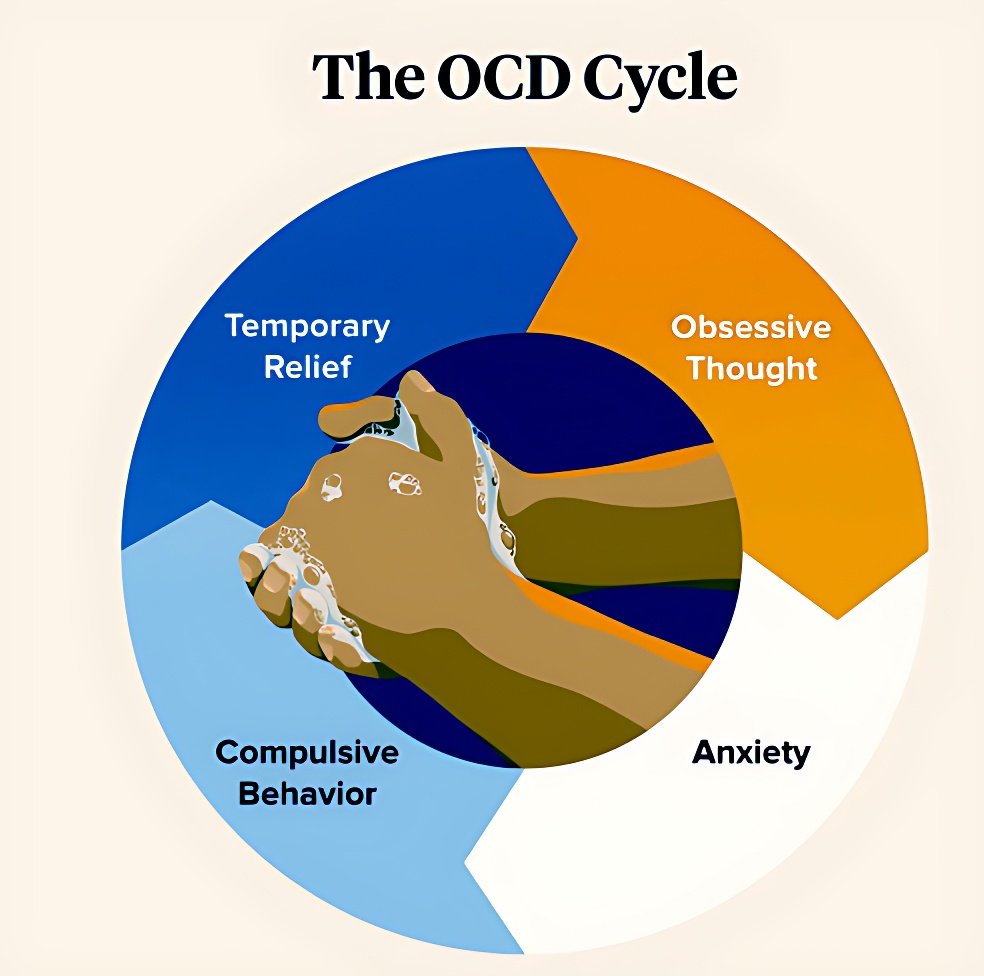Obsessive-compulsive disorder (OCD) features a pattern of unwanted thoughts and fears (obsessions) that lead you to do repetitive behaviours (compulsions). These obsessions and compulsions interfere with daily activities and cause significant distress.
OCD often centres around specific themes — for example, an excessive fear of getting contaminated by germs. To ease your contamination fears, you may compulsively wash your hands until they’re sore and chapped.
If you have OCD, you may be ashamed and embarrassed about the condition, but treatment can be effective.
Obsessive-compulsive disorder usually includes both obsessions and compulsions. But it’s also possible to have only obsession symptoms or only compulsion symptoms. You may or may not realize that your obsessions and compulsions are excessive or unreasonable, but they take up much time and interfere with your daily routine and social, school or work functioning.
Obsession symptoms
OCD obsessions are repeated, persistent and unwanted thoughts, urges or images that are intrusive and cause distress or anxiety. You might try to ignore or eliminate them by performing a compulsive behaviour or ritual. These obsessions typically intrude when trying to think of or do other things.
Obsessions often have themes to them, such as:
Examples of obsession signs and symptoms include:
OCD compulsions are repetitive behaviours that you feel driven to perform. These repetitive behaviours or mental acts are meant to reduce anxiety related to your obsessions or prevent something bad from happening. However, engaging in the compulsions brings no pleasure and may only temporarily relieve anxiety.
 OCD-cycle
OCD-cycle
You may make up rules or rituals to help control your anxiety when you have obsessive thoughts. These compulsions are excessive and often are not realistically related to the problem they intend to fix. As with obsessions, compulsions typically have themes, such as:
Examples of compulsion signs and symptoms include:
There’s a difference between being a perfectionist — someone who requires flawless results or performance, for example — and having OCD. OCD thoughts aren’t simply excessive worries about real problems in your life or like to have things clean or arranged in a specific way. See your doctor or mental health professional if your obsessions and compulsions affect your quality of life.